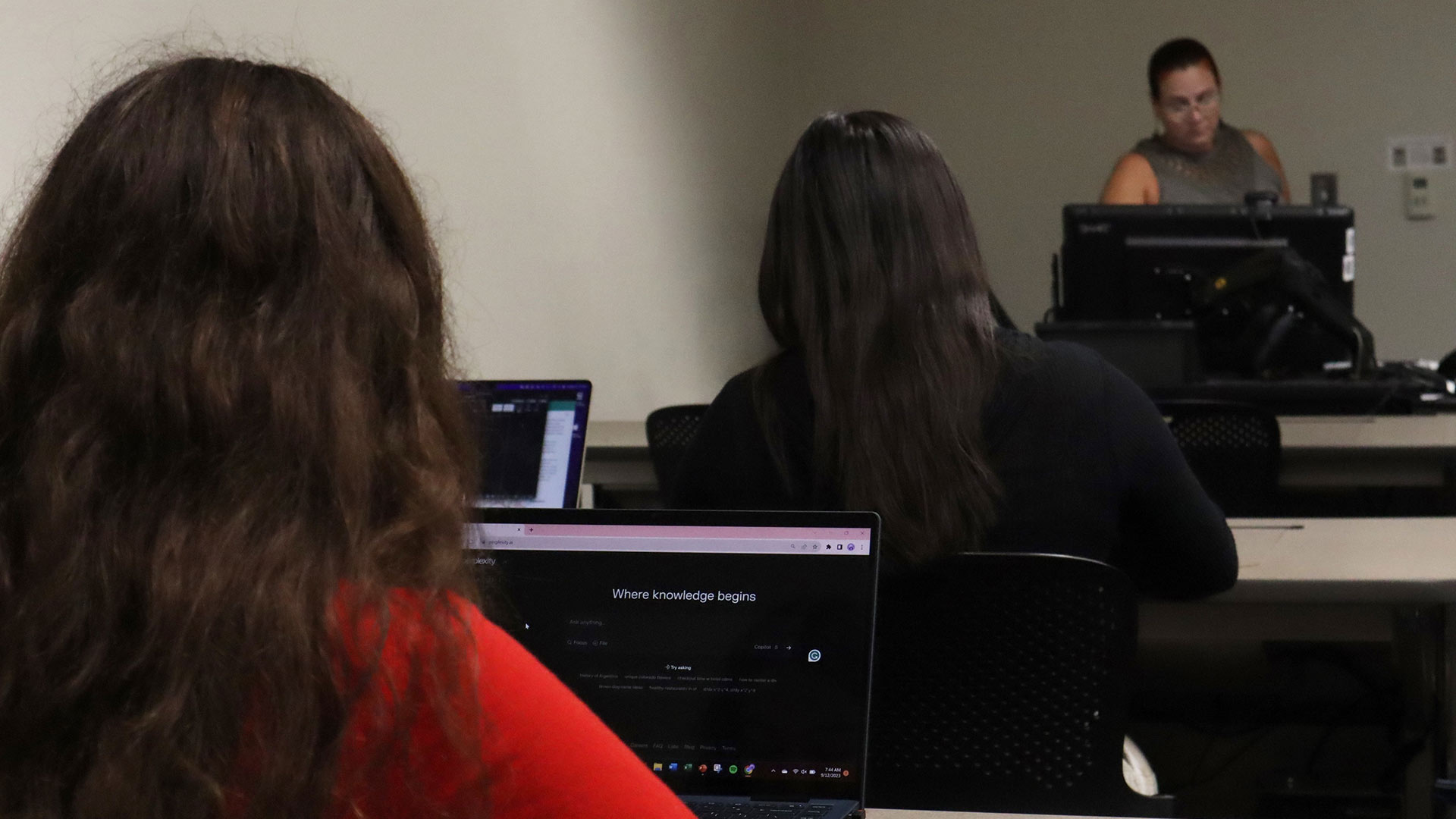 College students studying during a lecture. September 12, 2023.
College students studying during a lecture. September 12, 2023.
The Arizona State Treasurer made a call to the Arizona State Board of Education last month to have high school students take a class on financial education before they graduate. A a bill is also circulating the Arizona Legislature that would codify that requirement for the graduating class of 2028.
Arizona Treasurer Kimberly Yee said 17-years ago when she worked for former State Treasurer Dean Martin, her job was to go to schools and speak about the importance of financial education. She said back then, she spoke with new college students at a local university during orientation week, and saw that many were signing up for credit cards.
"So, as those same students walked into my session to talk about this very important topic of financial education, I asked them: ‘how many of you signed up for your first credit card?’ And all of these hands were raised," Yee told AZPM. "I asked them a second question: ‘how many of you have ever taken financial education in high school?’ And the same hands were not raised, so I knew we had a problem.”
Arizona State Board of Education Member and Cochise County Superintendent of Schools Dr. Jacqui Clay said some students don’t know how to write a check or understand the difference between a credit union and a bank. She believes required financial ed classes are needed.
“It’s an elective in a lot of schools," said Clay. "We’re talking about something that the student has to take whether it’s a half-semester, whole semester, where they super understand and they’re excited about this — and not only that — the red flags. You know how there are companies that give credit cards, and there’s no red flag. Or companies that say ‘the payment is this,’ but they don’t understand that payment is over 6,7,8-years at a very high rate. So, we need to teach them those red flags.”
There is also a bill circulating the Arizona State Legislature which states that beginning with the graduating class of 2028, at least a half-credit course in personal finance will be required to graduate high school.
The bill’s sponsor, Arizona State Senator J.D. Mesnard (R-LD13), said he brought the bill to help ensure the next generation would have the tools they need to make good financial decisions.
"Some of the first decisions they’ll have to make are should they borrow for college?" said Mesnard. "You know, should they buy or lease a car? Should they take advantage of the myriad of credit card companies advertising on every sidewalk on a college campus? All of those things will follow them and the decisions they make, so we just want to make sure they’re armed with the tools to make good financial decisions.”
If the bill is signed into law, Senator Mesnard said the direction of the bill is to leave maximum flexibility to the Arizona State Board of Education and local school districts as to how they implement the requirement.
"For instance, there are seven elective credits that are built into the 22 hours to graduate," said Mesnard. "So it could be potentially, you know, a half-credit one of those seven. Or the fourth year of math is relatively open in terms of how you fulfill that requirement. So perhaps it ends up there … We’re not looking to add to the 22 hours. So, this is still baked into the existing 22 hours that already are a requirement.”
The senator said the bill has bipartisan support in committee. He said he’s looking to add an amendment to the bill to change the graduating class this requirement affects to 2030, but that amendment hasn’t been added yet.
It's not the first time the legislature has tried to mandate personal-finance classes. In 2019, it made at least a half-credit economics course a high school graduation requirement, which included instruction on personal finance management.
"But we were not able to indicate how much of the time on task would be in that economics class," said Yee during her presentation to the Arizona State Board of Education on the January 22 meeting. "So, we still don't know what percentage of time is taught within that econ coursework."
Senator Mesnard said that current requirement includes only about two weeks of personal finance instruction.
"That was the product of compromise here at the legislature years ago," said Mesnard. "Frankly, just took away from econ and really didn’t do justice to personal finance.”
Executive Director of the Arizona State Board of Education Sean Ross said the board did not vote on the topic during the January 22 meeting. The bill sponsored by Senator Mesnard is still making its way through the legislature.

By submitting your comments, you hereby give AZPM the right to post your comments and potentially use them in any other form of media operated by this institution.